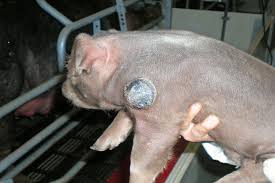


Maintaining the health of your rabbits is a fundamental aspect of successful rabbit farming. Preventative care, early detection of diseases, and prompt treatment are essential for ensuring the well-being of your herd. Understanding common health issues and implementing effective disease management practices can significantly reduce losses and improve productivity.
Read more related: Agroecological Approaches to Animal Husbandry
Common Rabbit Health Issues
Rabbits are susceptible to various health problems, many of which can be prevented through good husbandry practices. Some common health issues include:
Respiratory Infections: These are often caused by poor ventilation, dusty bedding, or overcrowded conditions. Symptoms include sneezing, nasal discharge, and labored breathing.
Gastrointestinal Stasis: This condition occurs when the digestive system slows down or stops. It can be caused by a poor diet, lack of exercise, or stress. Symptoms include reduced appetite, bloating, and small or no fecal pellets.
Dental Problems: Rabbits’ teeth continuously grow, and improper wear can lead to overgrowth and malocclusion. Signs include drooling, difficulty eating, and weight loss.
Parasites: External parasites like mites and fleas, as well as internal parasites like worms, can affect rabbits. Symptoms vary but can include itching, hair loss, and digestive issues.
Viral Diseases: Myxomatosis and Rabbit Hemorrhagic Disease (RHD) are serious viral infections that can cause significant mortality. Vaccination is crucial for prevention.
Preventative Health Care
Preventative measures are the first line of defense against diseases. Implementing the following practices can help maintain a healthy rabbit herd:
Vaccination: Ensure your rabbits are vaccinated against common diseases like Myxomatosis and RHD. Consult a veterinarian for a suitable vaccination schedule.
Clean Housing: Regularly clean and disinfect cages, feeders, and waterers. Remove soiled bedding and waste daily to prevent the buildup of harmful bacteria and parasites.
Proper Nutrition: Provide a balanced diet rich in fiber, with high-quality hay as the main component. Fresh vegetables and a controlled amount of pellets supplement their nutritional needs.
Regular Health Checks: Conduct routine health inspections to identify any signs of illness early. Check for abnormalities in behavior, appetite, and physical condition.
Quarantine New Arrivals: Isolate new rabbits for a period before introducing them to the main herd to prevent the spread of potential diseases.
Recognizing Signs of Illness
Early detection of illness can significantly improve the chances of successful treatment. Common signs of illness in rabbits include:
- Lethargy or decreased activity
- Loss of appetite or difficulty eating
- Weight loss or poor body condition
- Changes in fecal output (size, consistency, or absence)
- Respiratory symptoms (sneezing, nasal discharge)
- Changes in behavior (aggression, hiding)
Treatment and Veterinary Care
If a rabbit shows signs of illness, prompt veterinary care is essential. A veterinarian experienced with rabbits can provide accurate diagnoses and appropriate treatments. Common treatments may include antibiotics for bacterial infections, antiparasitic medications, and supportive care such as fluid therapy and nutritional support.
Biosecurity Measures
Implementing biosecurity measures helps prevent the introduction and spread of diseases. Some key practices include:
Limiting Visitors: Restrict access to your rabbitry to minimize the risk of disease introduction. Visitors should follow hygiene protocols, such as wearing clean clothing and disinfecting footwear.
Sanitation: Regularly clean and disinfect all equipment and facilities. Use appropriate disinfectants effective against common rabbit pathogens.
Isolation: Isolate sick rabbits immediately to prevent the spread of disease. Provide separate care and handling for sick and healthy animals.
Record Keeping
Maintaining detailed health records for each rabbit is crucial for effective disease management. Record vaccinations, treatments, and any health issues observed. This information helps track patterns, manage breeding programs, and make informed decisions about culling and treatment.
Stress Management
Stress can weaken a rabbit’s immune system, making them more susceptible to diseases. Minimize stress by providing a stable environment, avoiding sudden changes, and handling rabbits gently and calmly.
Continuous Education
Staying informed about rabbit health and disease management is essential for successful farming. Attend workshops, read industry publications, and network with other rabbit farmers to stay updated on best practices and new developments.
By prioritizing the health and well-being of your rabbits, you can create a thriving and productive rabbit farming operation. Implementing preventative measures, recognizing signs of illness early, and seeking prompt veterinary care are key components of effective health management in rabbits.



